'End Morocco's 40-year occupation of Western Sahara', refugees plea
The Sahrawi people of Western Sahara - the African continent's last colony - have called upon the UN to move forward with a political settlement after 40 years of occupation of their land by Morocco.
Around 100,000 Sahrawis have been living as refugees for four decades here in Tindouf, in Algeria's south-western corner. They are living in a series of five camps, all located in the most hostile and barren deserts of the world, with each camp named after a main town in their country of origin.
"The referendum on self-determination in Western Sahara must be organised in order to avoid any further instability in the North African region," an official from the Sahrawi Arab Democratic Republic (SADR) - the internationally recognised government-in-exile of the Sahrawi people - told The New Arab.
"We expect the United Nations to take their responsibility. A special mission, which is the MINURSO, was sent for this purpose," said the official, who asked not to be named for security reasons.
The United Nations Missions for the Referendum in Western Sahara (MINURSO) was first deployed following the 1991 ceasefire between the Polisario Front and Morocco.
| In pictures: Annual Sahara marathon held in Algeria |
Life in the refugee camps of Tindouf is tough amid the extreme desert climate. And life has become even tougher lately, as humanitarian aid dropped off during the global economic crisis.
According to the World Food Programme, food aid is often irregular and generally insufficient. It only covers one-third of nutritional requirements.
Celebrating the 40th anniversary of the proclamation of the SADR, Sahrawi President Mohamed Abdelaziz told reporters: "The UN and international community have to take their responsibilities and recognise the Sahrawi issue."
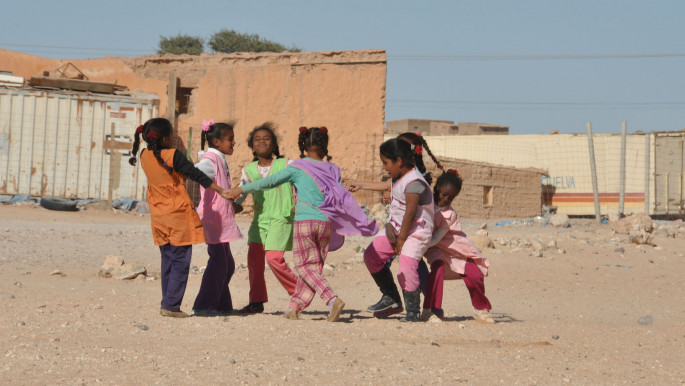 |
|
|
Life in a Sahrawi refugee camp is much like other camps [Massinissa Benlakehal] |
For many years, UN-backed decisions have had little follow-up on the ground. For almost three decades, since the ceasefire took hold, Sahrawi refugees are still waiting for the settlement of the conflict.
In his 2014 report, the UN Secretary-General underlined the urgency of finding conclusions and delivering new options if no progress was made in 2015 - a problem highlighted by Western Sahara's prime minister, Taleb Omar.
"Morocco is in a situation of isolation given its problems with both the African Union and the United Nations, including the confrontation with several other countries due to its illegal occupation of Western Sahara," said Omar.
"This should encourage the international community to recognise the SADR as a member of the UN in response to the Moroccan regime's intransigence."
More than 80 countries recognise the Sahrawi Arab Democratic Republic. Inside the camps, where the official institutions are based, there are 19 ministries. Women, who form 23 percent of elected parliamentarians, head three of these ministries.
Meanwhile, military displays in Dakhla camp last week were meant to show the world the readiness of the Sahrawi people.
"Through the military exhibitions commemorating the 40th anniversary of the proclamation of SADR, the Sahrawis want to show they have a well-prepared army," said Omar.
"The armed struggle for independence is a possibility that isn't ruled out, and for which we're preparing."
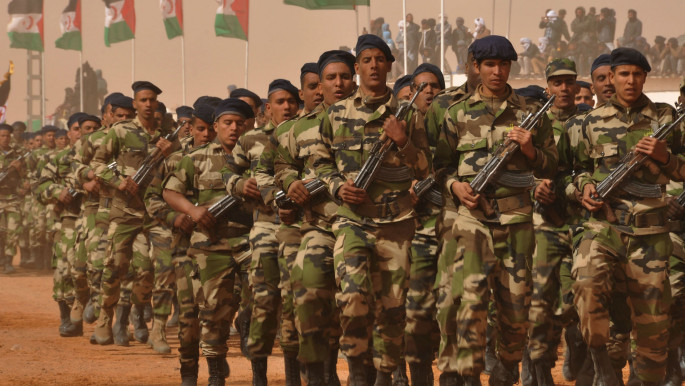 |
|
|
Sahrawis say they are preparing an armed struggle for independence [Massinissa Benlakehal] |
Current positions favour the use of diplomatic means to find a resolution.
"Sahrawis are held at the same time to cease hostilities, favouring peaceful means and to focus on the visit of the UN Secretary-General aimed at reaching a settlement," Omar said.
However, the prime minister concluded that this doesn't exclude the fact "that we are preparing for other options".
Last week, the Moroccan government suspended contacts with several European Union institutions, after the EU decided in December to cancel their farm trade agreement with Rabat.
The European Court argued the farm agreement should exclude the occupied territory of Western Sahara.
In 2015, Moroccan farm trade amounted to $4.39 billion. Most of it was concluded with European countries. What's more, it is the occupied Western Sahara which is phosphate-rich as well as fish-rich and believed to also have offshore oil deposits.
25 years after ceasefire
After falling under Spanish rule in 1884, Western Sahara became a Spanish province in 1934. More than half of its territory has been under Moroccan control since 1976.
King Hassan II of Morocco had ordered, in November 1975, a "Green March" of more than 300,000 Moroccans into Western Sahara's territories. A month earlier, the International Court of Justice had rejected both Morocco and Mauritania's territorial claims.
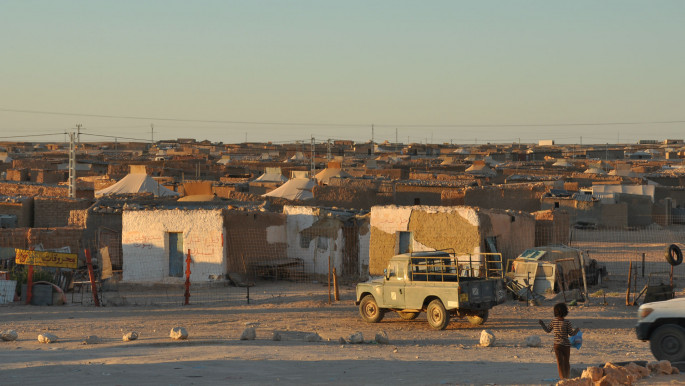 |
|
|
Sahrawi refugee camps have existed for 40 years [Massinissa Benlakehal] |
The Moroccan occupation provoked a rebellion led by the Polisario Front.
Following 15 years of guerrilla war, the UN brokered a ceasefire in 1991, in order to organise a referendum on self-determination. After 25 years, no referendum has yet been held.
The transition was never likely, as the key sticking point blocking the process was the identification and decision of who was or was not eligible to vote.
The Polisario Front announced the establishment of the Sahrawi Arab Democratic Republic on 27 February 1976.
To consolidate its total control over the occupied territories of Western Sahara, Morocco used brutal force. Several NGOs denounce continued Moroccan violations of human rights, torture and murder of Sahrawi activists.
According to the SADR, to date, there are 71 Sahrawi political prisoners in Moroccan jails. More than 600 other Sahrawis are in Moroccan jails.
"There is no doubt that the Sahrawis have accomplished several gains," Brahim Ghali, the president of the Polisario Front's political commission, told The New Arab.
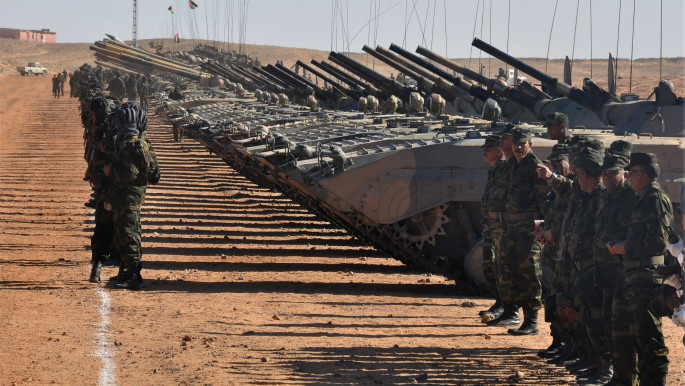 |
|
|
Armed Sahrawis have plenty of military hardware [Massinissa Benlakehal] |
"The state of Western Sahara has now reached adulthood and is able to handle its faith," Ghali, who was SADR's ambassador to Algeria, concluded.
Surviving the barren desert
Unlike many other refugee camps, Sahrawi camps are very well organised, with primary schools, medical facilities, and administration.
Men and women inside the camps are the ones running their own affairs related to camp life.
And in Sahrawi society, women play the key role in running camp life.
For all children, school is mandatory. There are more than 6,000 children attending primary school classes here in these camps. Most are later sent abroad to continue their studies.
"Every Sahrawi has something to do, as authorities organise life and the distribution of tasks inside the camps," 33-year-old Baba told The New Arab.
The army for the liberation of Western Sahara is composed of both men and women.
Baba, a soldier, explained: "I was born in the camps and I didn't want to move to a different country, and joined the army to fight for our independence."
Follow Massinissa Benlakehal on Twitter: @mbenlakehal
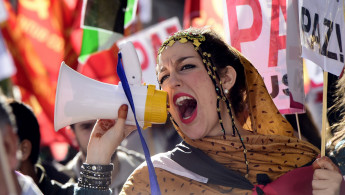

![Minnesota Tim Walz is working to court Muslim voters. [Getty]](/sites/default/files/styles/image_684x385/public/2169747529.jpeg?h=a5f2f23a&itok=b63Wif2V)






